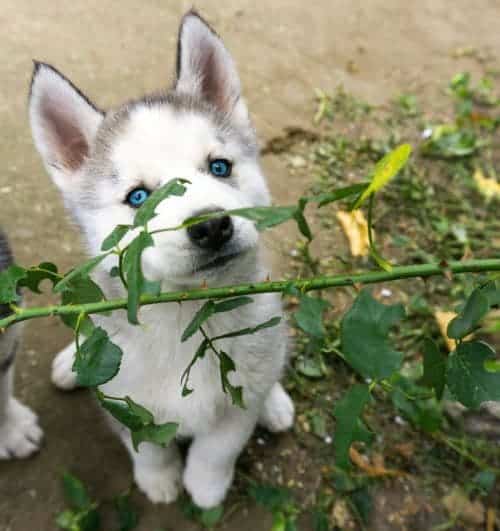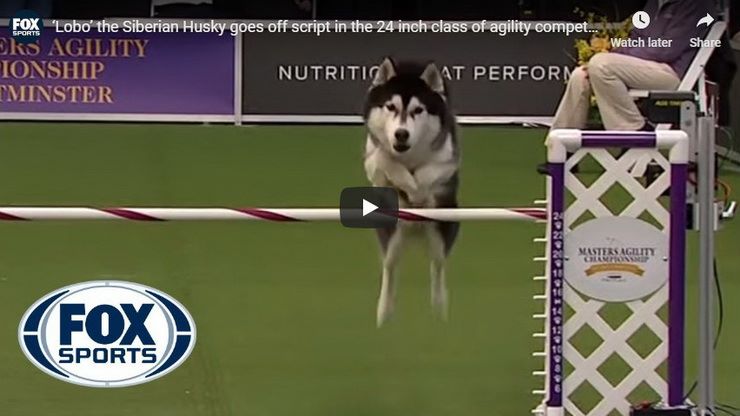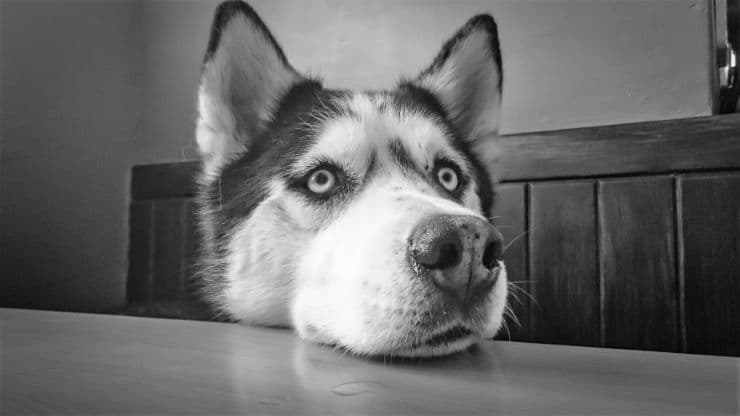The Siberian Husky is a medium-sized working dog with a thick double coat and striking facial markings. They have an outgoing, friendly personality and can be quite mischievous. They are highly intelligent, learn quickly, and are known to be very loyal companions.
Physically, the Siberian Husky is a strong, athletic breed that is well suited for colder climates due to their thick double coats. Their coats come in many colors, including black and white, gray and white, red and white, sable and white, silver and white, or solid white.
They have erected ears, almond-shaped eyes (which can be blue or brown), a thick tail that generally curves over their back when in motion, and long legs that make them fast runners. The males are usually larger than the females.
Siberian Husky Needs a Lot of Exercise and Some Training
Siberian Huskies are full of energy and need plenty of exercise every day; without it, they may become destructive or start digging holes in your yard.
A good daily walk or jog will help keep them physically fit as well as mentally stimulated, which will help prevent boredom-related behaviors such as barking or howling excessively. Walks should be kept long enough for the Husky to work off some of its energy but not so long as to tire them out completely.
Siberian Huskies are very intelligent dogs that like to please their owners but can sometimes be quite stubborn. Because of this, they require consistent training from an early age so they know who is in charge. They have a strong will and if they decide that something isn't worth their effort, they won't do it. When training a Siberian Husky, it is important to be consistent, patient, and use positive reinforcement techniques. It is also important to make sure that the training sessions are short and fun.
Siberian Huskies can be difficult to train due to their independent and stubborn nature. They have a strong will and if they decide that something isn't worth their effort, they won't do it. When training a Siberian Husky, it is important to be consistent, patient, and use positive reinforcement techniques. It is also important to make sure that the training sessions are short and fun.
Useful tips for training a Siberian Husky include:
- Start early - Begin socializing your puppy as soon as you bring him home; this will help him learn how to interact with people and other dogs in a positive way.
- Keep it simple - Start with basic commands such as sit, stay, come, heel, etc., and build up from there.
- Use positive reinforcement - Praise your dog for good behavior and reward it with treats or toys when they obey commands correctly. Avoid using punishments or negative reinforcement as this can lead to fear-based behaviors that can be difficult to reverse in the future.
- Be consistent - Make sure you are consistent in your commands and instructions; this will help your pup understand what you expect from them more quickly.
- Take breaks - Training sessions should not last longer than 20 minutes at a time; take breaks between training sessions so that your pup doesn't get bored or overwhelmed by too much information at once.
Siberian Husky Basic Care
Regular brushing is important for maintaining healthy coats in Huskies. Their coats will also require regular grooming to prevent matting and shedding.
It’s essential to closely monitor Husky’s diet to prevent them from becoming obese. Eye care is also especially important for this breed due to their propensity for eye disease.
Common health issues that Siberian huskies are predisposed to include hip dysplasia, eye diseases such as progressive retinal atrophy and cataracts, and skin allergies, and should be observed. They are also prone to flea allergies, thyroid problems, diabetes, and von Willebrand's Disease.
Regular vet check-ups are recommended in order to catch any underlying health issues early on.

Photo Credit: Mihaela Pastiu/Pexels
Pros and Cons of Getting a Siberian Husky
If you’ve been eyeing Siberian Husky puppies and are on the fence about getting one, you may want to consider the pros and cons before starting to look for a reputable breeder or checking out rescues.
Pros
- Siberian huskies are known to be very loyal and loving companions
- They form strong bonds with their owners, making them great family pets
- They have an incredible amount of energy, so they make great running and hiking partners
- They are generally friendly towards other animals and people, making them ideal for households that have other pets or children.
Cons
- The main downside to owning a Siberian Husky is their strong desire to wander off if not properly contained in a secure area.
- They need plenty of exercise and mental stimulation to keep them from getting bored and potentially running away.
- Their thick coats require regular grooming to keep them looking nice, which can be time-consuming for some owners.
- They tend to bark more than other breeds, which can be disruptive in some quiet neighborhoods.

In Conclusion
Overall, the Siberian Husky is an active breed with a friendly nature that loves attention from their human family members but also needs basic care and plenty of exercise each day to stay healthy both mentally and physically.
Read more about Siberian Huskies on our website

Leave a Reply